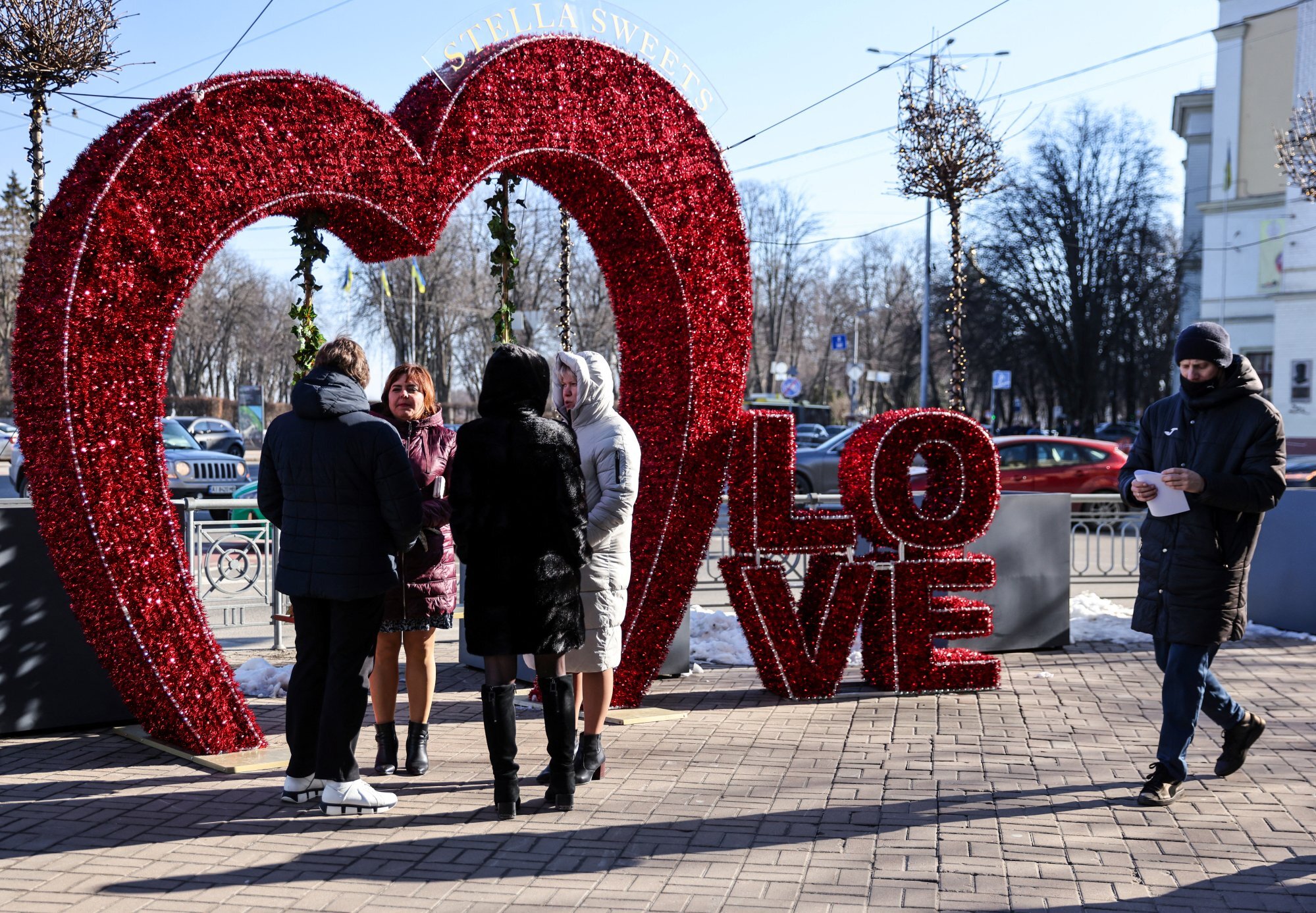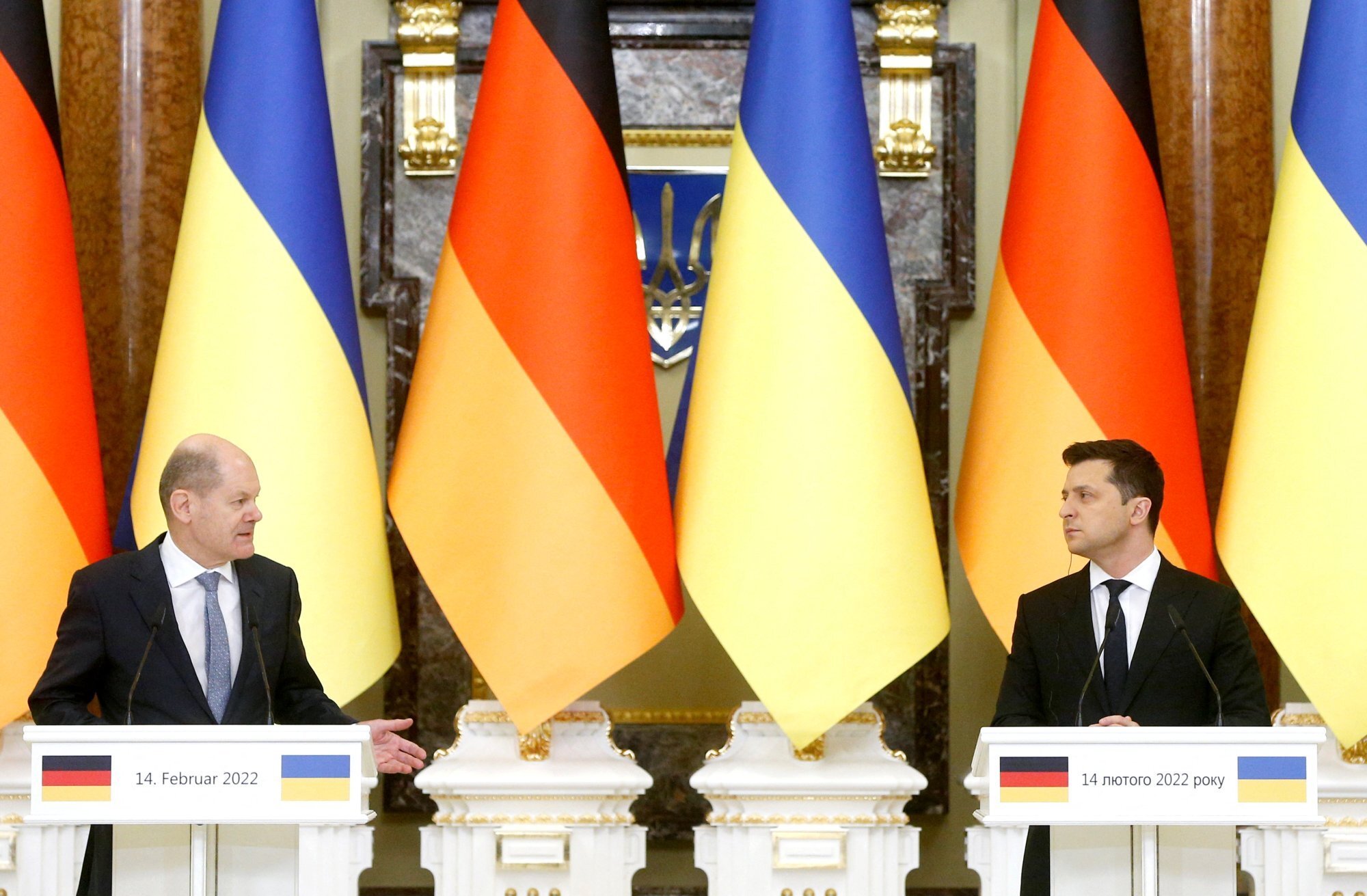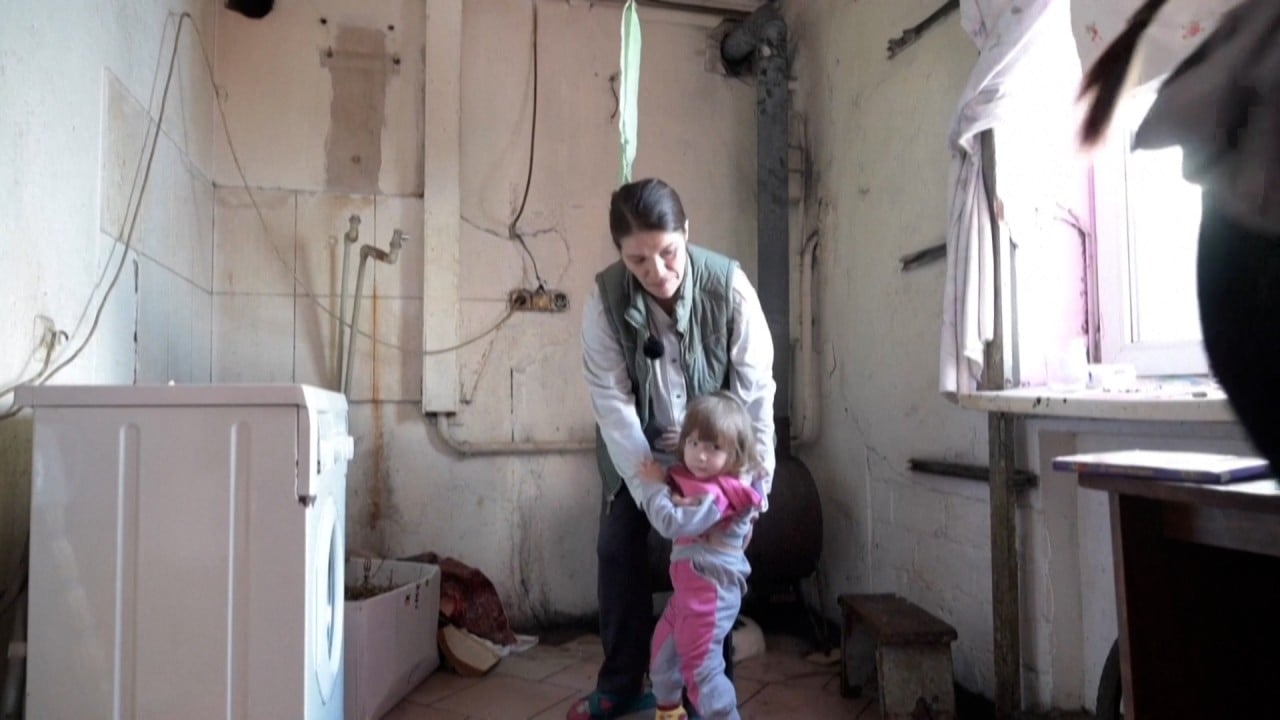
Ukraine crisis: Russian FM Lavrov urges more talks with West, Germany’s Scholz in Kyiv hoping to calm war threat
- Foreign Minister Sergey Lavrov has advised President Vladimir Putin to ‘continue and expand’ talks with the West
- German Chancellor Olaf Scholz has arrived in Kyiv, due in Moscow Tuesday, hoping to head off ‘critical, dangerous’ threat, demand de-escalation
The statement by Russian Foreign Minister Sergey Lavrov appeared to signal the Kremlin’s intention to stay on a diplomatic path even though the US has warned that Moscow could invade Ukraine at any moment.
Speaking at the start of a meeting with Putin, Lavrov suggested Moscow should maintain a dialogue with the US and its allies even though they have rejected Russia’s main security demands.

Soon afterward, Defence Minister Sergei Shoigu reported that some of Russia’s massive military exercises now under way are already concluded, while others will end later. He did not specify plans for returning troops to their bases, but other officials have said they will go back once the operations are over.
Meanwhile Ukraine’s President Volodymyr Zelensky said on Monday it had been a mistake for some Western countries to move their embassies from Kyiv in fear of a Russian assault.

“It is a big mistake that some embassies – well, this is their decision – are moving to western Ukraine,” he said, after some international missions opened offices in the city of Lviv. “Because there is no western Ukraine, there is Ukraine, it is whole. So if, God forbid, something happens it will be everywhere.”
The US has demanded Russia pull back some 130,000 troops it says Moscow has massed near the border with Ukraine, many as part of the exercises Russia’s Shoigu described.
Moscow so far has rejected those appeals and called for the US and its allies to give sweeping security guarantees, including a ban on further expansion of Nato.


The talks “can’t go on indefinitely, but I would suggest to continue and expand them at this stage,” Lavrov said.
Germany’s chancellor Olaf Scholz arrived in Ukraine Monday, due in Moscow Tuesday, in a last-ditch attempt to head off a feared Russian invasion of Ukraine.

Moscow denies it has any plans to invade but in the US view has built up enough firepower and troops to launch an attack on short notice.
In Kyiv the German leader headed directly to see President Volodymyr Zelensky, whose government has demanded an urgent meeting with Russia and dozens of other European states to explain why Moscow has deployed so many soldiers.
Ukrainian Foreign Minister Dmytro Kuleba said late on Sunday that Russia had ignored Kyiv’s formal request to explain why Moscow had positioned troops and advanced weapons around Ukraine, a former Soviet republic.

The 1990 Vienna Document requires the 57 members of the Organization for Security and Co-operation in Europe (OSCE) to share information about their military forces and notify each other about major activities.
“Ukraine is convening a meeting with Russia and all member states in the next 48 hours to discuss the reinforcement and movement of Russian forces along our border,” he wrote on Facebook.
On Monday Putin’s spokesman did not comment on Kyiv’s request but reiterated Russia’s stance that Moscow was free to move troops across the country’s territory.

The West has remained united and defiant in the face of Putin’s demands for binding security guarantees that would see Nato roll back its forces and rule out Ukraine’s potential membership.

Finance ministers from the Group of Seven (G7) nations said on Monday they are prepared to impose “massive” economic sanctions on Russia should it attack Ukraine, while Scholz tweeted that Germany was “demanding immediate signs of de-escalation” from Moscow.
“We assess the situation as very critical, very dangerous,” a German government source said.
On Sunday, Washington reaffirmed its warning that Russia was ready to strike at “any moment”.

The Ukrainian presidency said Zelensky had also urged Biden to visit Kyiv “in the coming days” in a show of moral support.
The White House made no mention of the invitation in its readout of the 50-minute phone call.
The US on Saturday ordered all non-emergency staff to leave its embassy in Kyiv.

Germany is playing a central role in mediation efforts around the gruelling conflict in Ukraine’s Russian-backed separatist east that has claimed more than 14,000 lives.
But Berlin’s close business relations with Moscow and heavy reliance on Russian natural gas imports have been a source of lingering concern for Kyiv’s pro-Western leaders as well as Biden’s team.
US denies Russian warship chased off its submarine in the Pacific
Scholz has warned Russia it should “not underestimate our unity and determination” but also hedged against unequivocally backing Biden’s pledge to “bring an end” to Russia’s new Nord Stream 2 gas link to Germany.
Kyiv is also upset with Berlin for not having joined some of its Nato allies in beginning to supply weapons to Ukraine.
Despite the diplomatic push a growing number of Western countries are withdrawing staff from their Kyiv embassies and urging their citizens to immediately leave.
But departures may be complicated by the looming threat of the skies over Ukraine closing due to rising risks for airlines. Dutch carrier KLM became the first major airline over the weekend to suspend flights to Kyiv indefinitely.
Industry analysts believe other international airlines may soon also ban flights into Ukraine because of the growing cost to insurers.
The travel industry is still haunted by the memory of Malaysia Airlines flight MH17, shot down near eastern Ukraine’s conflict zone in July 2014.
MH17 flight: Dutch prosecutors call for life terms for suspects
All 298 passengers and crew were killed.
The diplomatic drawdown has also touched the staff of the OSCE monitoring mission in Ukraine. It said “certain participating states” had asked their staff to leave Ukraine “within the next days”.

.png?itok=arIb17P0)


